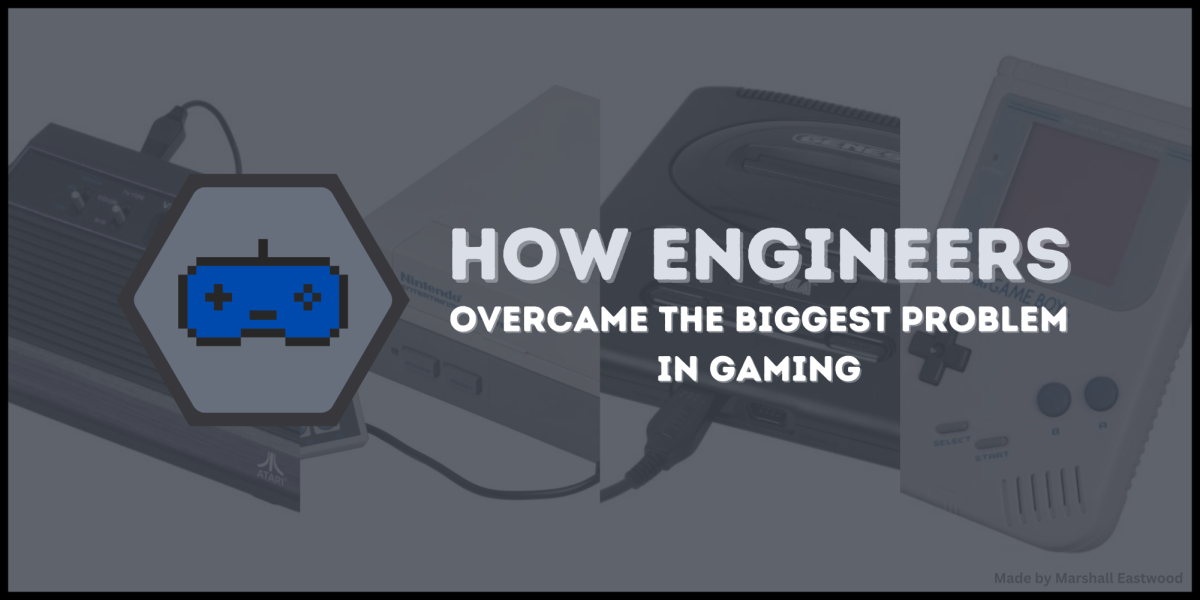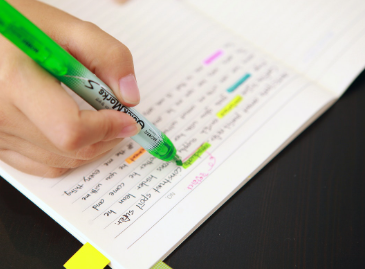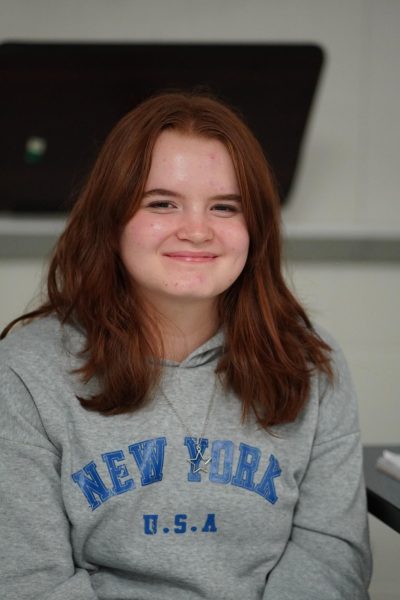For almost all of time, people with Special Needs have been treated differently than those without. Whether it’s through bullying, excessive babying, or just straight up discrimination in society, their lives are negatively affected simply from something they were born with.
“Anything that can describe someone that they can’t change in five minutes or less should never be used as an insult or commented on in a mean way,” said Junior Parker Leming.
Unfortunately, not everyone else has this perspective.
Many people online and offline have created stereotypes and false perceptions of individuals with disabilities. It’s common to think that anyone who has a disorder or disability is incompetent, underdeveloped, or just not intelligent like the average person. These misconceptions lead to false presumptions of people or unjust jokes and bullying.
In reality, none of that is true. Even if someone has a learning disability, it doesn’t make them unintelligent. If an individual has a developmental disorder, it doesn’t give others the right to infantize them.
“A lot of people just assume that (if) you have a learning deficit or different abilities that you’re lesser, and you’re not,” said Special Education Teacher Brandi Leming. “It’s pretty significant, because people just assume the worst.”
Leming has been working with individuals with Special Needs for 24 years, ever since she signed her first teaching contract in 2001. Not only does she work as a teacher for Special Education, but she is also one of the several coaches for the Unified and Champions Together teams here at Carroll High School.
“That’s where people get really hung up, is that they hang onto that “difference” thing. Instead of looking at what it could offer, they look at how it negatively impacts them… Everybody’s different, and that’s okay. It’s always been that way for me, and so I look at what you can offer the world instead of what you don’t have that I have.”
Junior Unified Partner and Peer Tutor Drew Sunderlin had similar thoughts.
“We all have the same blood. We’re all humans. We should learn to accept each other instead of putting each other down,” said Sunderlin.
With certain disabilities, it’s easy to tell when someone has one, as it can change their appearance
Sometimes, though, it’s hard to tell when someone has a disability. Oftentimes they may not look different but still have a disorder. This is called an Invisible Disability, and is seen most commonly with Autism Spectrum Disorder, or ASD.
Autism Spectrum Disorder is a neurological disorder that affects brain development and impacts a person’s ability to socialize and perceive certain things. This can cause problems with communication and social interaction with others.
Being a spectrum, there is a wide range of severity and symptoms for those with Autism. Some symptoms can include repetitive behaviors, limited speech, and/ or slower brain development.
Some patients with ASD could only have mild symptoms that rarely interrupt their everyday life, while others have more severe symptoms that prevent them from communicating or understanding things flawlessly.
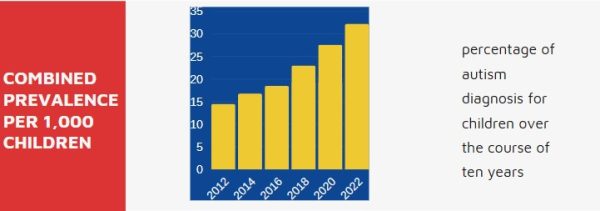
Here at Carroll, Autism and Learning Disabilities are the most common disabilities in the Special Needs room. It’s not as easy as it once was to be put into this education program.
In the past, you could test and see if there was a discrepancy between someone’s IQ and adaptive skills. These skills are common everyday things like getting dressed, feeding themselves, etc.
If there was a deficit found, from there the individual could qualify for an intellectual disability.
But there became a moment in time when they were qualifying anyone and everyone for a disability, and they had to change the system.
“The Special Ed program is very broad,” said B. Leming. “There are thirteen school-aged categories, so if you’re not within that one to two percent of the applied skills, then you’re in resource… You have to try lots of different things and then not be successful, and then we could qualify you for an IEP (Individualized Education Plan), and you’d go through a bunch of battery of tests.”
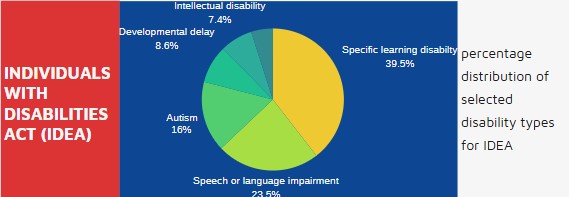
Because of all of these tests, Special Needs is not something that can be self-diagnosed. Though, many continue to do so, mainly based on videos they see on social media. A common disability that many claim to have is ADHD, or Attention Deficit Hyperactivity Disorder.
“‘Oh, I have ADHD today’, no you don’t. You either do have it or you don’t,” said B. Leming. “It’s like a constant battle that you fight. You don’t have it one day (and) not the next day. It’s so rude… it’s demeaning to the struggles that people go through.”
ADHD is a brain disorder that affects a person’s ability to pay attention, sit still, and/or control their behavior. It can be difficult to get things done with ADHD, and while it is one of the most commonly diagnosed mental disorders, it doesn’t mean that everyone has it. Some individuals self-diagnose themselves because they have certain behaviors that are similar to ADHD symptoms. Same with Autism.
“No, those are habits and those are coping strategies that you do not have,” said B. Leming. “That’s why it’s obvious when someone has it. It’s because they don’t have the same coping skills that we have. And it’s not from lack of trying, it’s just hard for some, and it’s not a negative thing. No one should feel bad about having (disabilities).”
Yet, some people find it hard to accept others for who they are. They tease and ridicule others for being what they deem as “different”.
Many people think that bullying is dead. Constantly on social media, people are even commenting things like “Bring back bullying” in response to videos or people they see, and most of the time its people being themselves and not bothering others in the process.
Even if that statement is “just a joke”, it’s unfunny and ignorant, because bullying never left. Even here at Carroll, people are made fun of behind their backs, or even straight up to their face. And there’s little restraint in doing it to the Special Education students.
“People don’t even realize that it’s even bad, but they do it unconsciously,” said Sunderlin. “I’ve seen it in bathrooms, classes, hallways, basically everywhere.”
Unfortunately, it’s not just in person. Using disabilities and Special Needs for means of “dark humor” has been trending on social media for years. Saying things like “I’m so Autistic!” when making a simple mistake or having odd habits has been seen more commonly in today’s media.
One phrase specifically that has been used frequently in the media is “Sounds Autistic, I’m in”. This phrase is usually used in conversation when something is suggested, and the other person finds it odd or ridiculous, so they say “Sounds Autistic. I’m in!” This builds onto the falsified persona people have made of Autism and damages the reputation of those who have it.
“I feel like it dehumanizes them,” said Sunderlin. “It makes it seem like it’s a bad thing to be Autistic.”
And it’s not. There’s actually a lot of positive factors to having Autism. Depending on where they are on the spectrum, Autistic individuals can have an intricate attention to details, deep focus, excellent long-term memory, in-depth knowledge on topics and high level of skills, creativity, integrity, and more.
“Using autistic as an adjective for something that isn’t very smart, that mentality then transfers over to people with autism,” said P. Leming.
This adds again to that negative perspective built onto the Autistic community. It has also been made a trend to use the word sped, meaning Special Education, as an insult. This again makes having Special Needs into a bad thing.
“What’s sped have to do with it?… If you need to put down a whole population down to make yourself feel better, that’s on you,” said B. Leming. “It’s this problem when it becomes something accessible for everybody to watch and laugh at.”
When turning a phrase like that into a bad thing, it makes it complicated for those who are in Special Education or work in Special Education. It’s hard to unlearn saying different things when they have to be changed. This happened in the past when they changed from using the R word to Special Needs.
So, turning a phrase that literally is just the term for being a disabled student in the disabled classroom into an insult is not only extremely rude, but it could end up calling for a change in the name. As a society, we need to grow and stop normalizing jokes and comments like these.
“How are we ever going to grow as a society if this is what we find funny?” said B. Leming.
The overused excuse is always “it’s just a joke”, or “it’s not that serious”. But it is serious.
These are people’s lives who have to live these realities. It’s not funny to make these jokes about very real experiences people go through with Special Needs, and we need to do something about it.
“It’s not really funny, and this is someone’s life. You can’t make fun of that,” said Sunderlin.
“Every joke has a little bit of truth in it… and when they’re making fun of someone and saying ‘oh, it’s just a joke’, the grounding reality is that- they are like that. And then the joke is, that’s bad,” said P. Leming. “Think about it before you post it.”


